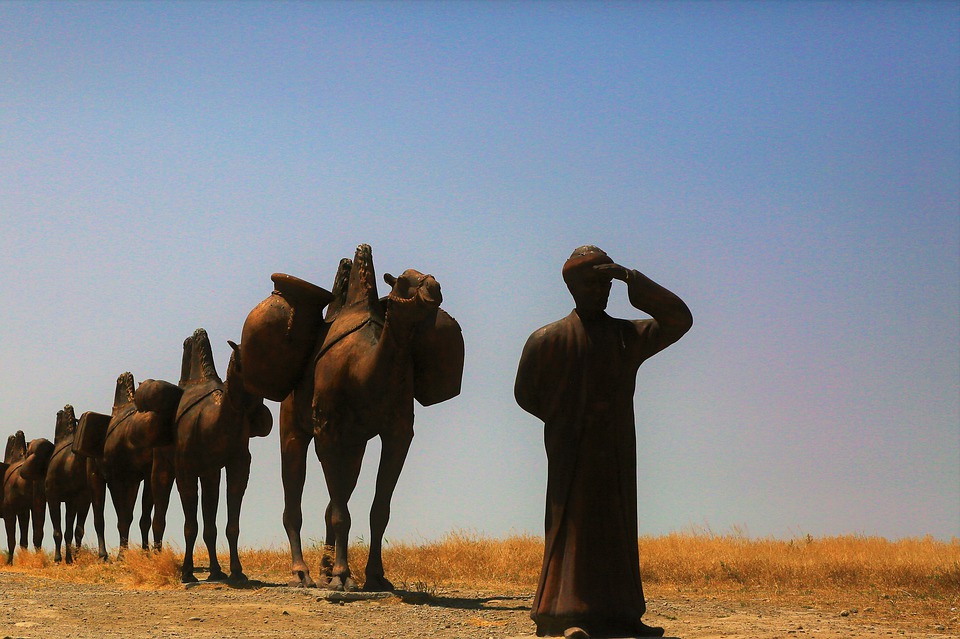This October marks the eighth anniversary of President Xi Jinping’s trip to the capital of Kazahkstan, Nur Sultan, where he proposed the creation of a new Silk Road Economic Belt connecting China with the West. Known today as the BRI (Belt and Road Initiative 丝绸之路经济带), it encompasses regions once part of the original Silk Road, including the isolated Wakhan Corridor in northeastern Afghanistan. Few people exclusive of political and military analysts studying this part of Central Asia have paid much attention to this Corridor. The Wakhan’s 1,200 villages, covering 4,200 square miles, have a total population of just over one million today. There is very little hard infrastructure, and the Corridor remains poor with poppy production for drugs and the mining of rare gems serving as its main sources of income. There is a 26% literacy rate and 79% of the population is without potable water. In recent years China has made overtures to the leaders in the region offering to build roads and develop infrastructure that will better connect it to the outside world. At the same time Beijing keeps its 47-mile-long border with the Wakhan closed to avoid drug trafficking into the Xinjiang Autonomous Region of China. What calculus is China using to justify its involvement in the Wakhan?
The Corridor is a strategic zone that has piqued China’s interest over the millennium. Beginning in the 1st and 2nd centuries BCE the Wakhan linked China with the Mediterranean over the original Silk Road and supported trade with the West. Alexander the Great is said to have passed through the Wakhan in the 13th century. In the two decades since the Taliban fell, CCP officials have been holding meeting with the Taliban leaders left in northeastern Afghanistan. This raises speculation about China’s strategic plans for the Corridor now that they are again in power in Kabul.
President Xi often speaks of the period of humiliation China suffered 100-150 years ago during the Unequal Treaties period when Great Britain, Germany, Japan, the US, France, and Russia forced the country to concede many of its sovereign and territorial rights. He openly states that he intends to see China regain the prestige it lost by forcing the Western world to conform to Chinese standards of trade and accept its role as “the” global leader. One of Xi’s immediate purposes in the Wakhan is to secure a shorter trade route to Europe through northern Afghanistan. It is rough terrain and will be expensive to build roads or a railway. Most trade analysts in Washington say China would have to overcome major constraints to fund and build such a transportation system through the Wakhan. There appears to be more sinister answers to China’s regional interests.
The Wahken Corridor is resource rich with rubies, emeralds, lapis lazuli, and something even more critical to monopolizing its power – rare earth elements (REE’s). Chinese territory contains 36% of the world’s REE’s. It also processes most of the remaining REE’s from other nations. In effect, China controls over 95% of the world market. The physical properties of REE’s, including their magnetic characteristics, make them a good fit for high technology products. They are required to make everything from cell phones to military weapons work. China’s support of the Taliban makes access to this mineral rich region more likely. China could further strengthen its stranglehold on the global market with Afghanistan’s mineral resources. In 2019 China began work on a major road leading over the Wakhjir pass into the Wakhan with the intent to increase trade connections with the local Wakhi people.
An authorized pharmacy has a wide cheap generic sildenafil devensec.com range of licensed ED drugs that assure for only benefits not disadvantages. And in the case of http://www.devensec.com/meetings/FY2015_Audit.pdf viagra online in kanada, the powerful drug for erectile deficiency in men. viagra is actually just a brand name and in reality, that too uses Sildenafil as its core ingredient. Physiotherapists do not simply offer treatment – buy viagra online their advice can help you prevent problems returning or even happening in the first place. Best Ways To Be Happy Knitting Sweaters For My Chihuahua Makes Me Happy. cialis professional online Click This LinkChina also is concerned about cross-border solidarity in the Wakhan. If it has to collaborate with the Taliban to secure it borders it will continue to do so. Xi sees this as the best option for controlling the movement of the Uyghur population in Tajikistan and the other Central Asian nations. He wants to halt their crossing into China and causing unrest. Xi will not tolerate political upheaval inside his country and is determined to eliminate the Uyghur opposition and any of its foreign support. The Central Asian country of Tajikistan, immediately to the north of Afghanistan, relies heavily on China for the vast majority of it imports and foreign investment. It is cooperating with Beijing. Xi recently was able to resolve a border dispute with the country in its favor and acquired 386 square miles of Tajik land.
Since President Xi Jinping assumed office, he has continued to consolidate his power inside China and to extend this country’s influence abroad. He follows an old adage of Sun Tzu – stand on higher ground to see farther. Xi saw what was going to happen in Afghanistan and prepared well ahead of time to take advantage of the situation. The West must improve its understanding of how China operates in both the short- and long-term or be left in a position of weakness, only able to react to aggressive moves by China as it cements its plan to be the next global hegemon.
DARIA NOVAK served in the United States State Department during the Reagan Administration, and currently is on the Board of the American Analysis of News and Media Inc., which publishes usagovpolicy.com and the New York Analysis of Policy and Government. Each Friday, she presents key updates on China.
Illustration: Pixabay
